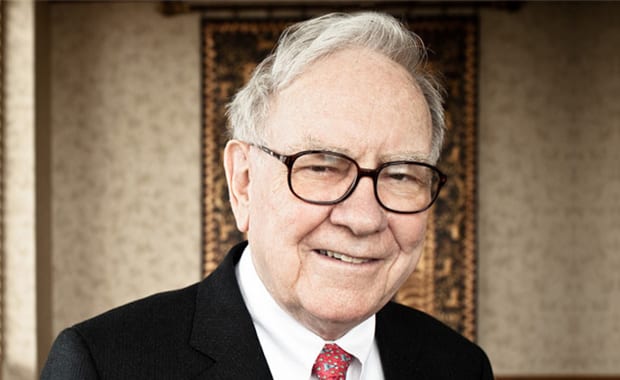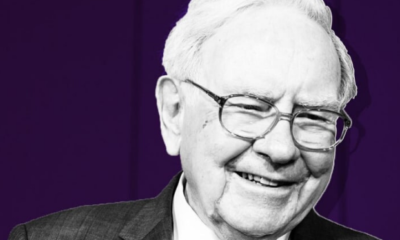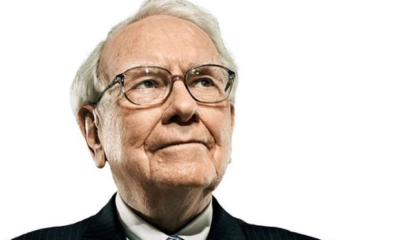Success Advice
Why Warren Buffett Embraces Not Knowing Everything and You Should Too

While the new generation of billionaire entrepreneurs like Mark Zuckerberg and Elon Musk seem to get involved in everything from space travel to foreign politics, Warren Buffett, the world’s most successful investor and one of the world’s richest men, embraces not knowing everything.
The “Oracle of Omaha” spends 8 hours a day reading, doesn’t use a computer and only invests in companies and industries that he understands. He has generated a 20.9% return on his investments from 1965-2017, more than doubling the average return of the stock market!
In this article, I will look at why Buffet embraces his lack of knowledge of things like tech and complex derivatives and how the average person can apply these 2 pieces of advice to achieve more success!
The most recommended book in silicon valley
“The Outsiders: Eight Unconventional CEOs and Their Radically Different Blueprint For Success” by William Thorndike is the most recommended book among the Silicon Valley crowd and focuses on unusual CEOs such as Harry Singleton of Teledyne and Warren Buffett of Berkshire Hathaway whose returns for investors trounced their peers.
The book found that all of these CEOs used two rules for making decisions:
- They view their most important job as the allocation of resources. That sounds a little technical but basically, it means making sure that both financial resources like money, stocks, and bonds and human resources like employees, management, and talent are all being used for their best and most efficient purpose.
- They think like investors, not managers. While a manager might need to think about the day to day workings of a business (taking up valuable time by having to learn things like astrophysics from youtube videos for example), an investor simply has to be able to evaluate what something is worth and what others are willing to pay for it. Because of that, investors can focus on creating value to raise the overall stock price.
“It’s better to hang out with people better than you. Pick out associates whose behavior is better than yours and you’ll drift in that direction.” – Warren Buffett
Let’s look at two ways you can apply these ideas to your daily life:
1. Resource allocation can make you more successful
When I say resource allocation, what I really mean is being efficient with your money, time and energy. One of the biggest problems we have as humans is inefficiency! We waste time, energy and money by not allocating our resources correctly. Take budgeting for example. Only about 41% of people claim they use a household budget.
How can you know if you’re managing your money correctly if you don’t keep track of where it’s going? You can’t. But the greatest way we waste our resources is through wasting time. Money and energy can be replenished but time is the one resource you will never get back. How are you using your time?
Are you building a better future for yourself and your family or are you wasting it playing video games or re-watching movies you’ve already seen a hundred times? Being more aware of how you allocate your time, money, and energy while focusing on finding the best and highest use for each will help you become more successful.
2. Think like an investor and you can be more successful
A few months ago I read and reviewed the 50-year anniversary of Buffett’s letters to investors. In 50 years of incredibly well-written, funny letters, Buffet boils down his investment theory to 2 points:
- What is something worth?
- Does the price reflect value?
In the letters, Buffet revises the old analogy that a bird in the hand is worth two in the bush- unless that is he writes you know exactly how many birds are in the bush and how likely they are to come out.
When thinking about all life decisions from whether or not to go back to school or start your own business, you want to think like an investor and ask yourself what is it worth you to and what price are you willing to pay to achieve this?
“It is not necessary to do extraordinary things to get extraordinary results.” – Warren Buffett
Nothing in this world is free, everything comes with a price if simply in the opportunity cost of pursuing one option over another. Asking yourself if this is something that is worth it to you and if you are willing to pay the price for pursuing it will help you think like an investor and make better decisions.
The world is full of so much information that we cannot possibly take in and understand it all. Instead of trying to learn everything about everything, Warren Buffett and other superstar outsider CEOs focus on the allocation of resources and thinking like Investors, not managers.
Which one of the principles Warren Buffett uses resonates most with you and why? Let us know your thoughts below!
Business
Why Smart Entrepreneurs Are Quietly Buying Gold and Silver
When stocks, property, and cash move together, smart business owners turn to one asset that plays by different rules.

You’ve built your business from the ground up. You know what it takes to create value, manage risk, and grow wealth. But here’s something that might surprise you: some of the most successful entrepreneurs are quietly adding physical gold and silver to their portfolios. (more…)
Business
The Simple Security Stack Every Online Business Needs
Most small businesses are exposed online without realising it. This simple protection stack keeps costs low and risks lower.

Running a business online brings speed and reach, but it also brings risk. Data moves fast. Payments travel across borders. Teams log in from homes, cafés, and airports. (more…)
Business
If Your Business Internet Keeps Letting You Down, Read This
From smoother operations to better security, dedicated internet access is quietly powering today’s high-performing businesses.

Today, a dependable internet service is the bedrock for uninterrupted business operations. Many organizations rely on stable online connections for communication, data transfer, and customer interaction. (more…)
Did You Know
How Skilled Migrants Are Building Successful Careers After Moving Countries
Behind every successful skilled migrant career is a mix of resilience, strategy, and navigating systems built for locals.

Moving to a new country for work is exciting, but it can also be unnerving. Skilled migrants leave behind familiar systems, networks, and support to pursue better job opportunities and a better future for their families. (more…)
-

 News3 weeks ago
News3 weeks agoBrandon Willington Builds 7-Figure Business by Ignoring Almost Everything
-

 Health & Fitness3 weeks ago
Health & Fitness3 weeks agoWhat Minimalism Actually Means for Your Wellness Choices
-

 Did You Know3 weeks ago
Did You Know3 weeks agoWhy Most Online Courses Fail and How to Fix Them
-

 Business3 weeks ago
Business3 weeks agoIf Your Business Internet Keeps Letting You Down, Read This
-

 Business2 weeks ago
Business2 weeks agoEntrepreneur’s Guide to Pay Stubs: Why Freelancers and Small Business Owners Need a Smart Generator
-

 Business1 week ago
Business1 week agoThe Salary Shift Giving UK Employers An Unexpected Edge
-

 Business2 weeks ago
Business2 weeks agoThe Simple Security Stack Every Online Business Needs
-

 Scale Your Business2 weeks ago
Scale Your Business2 weeks ago5 Real Ways to Grow Your User Base Fast




























2 Comments